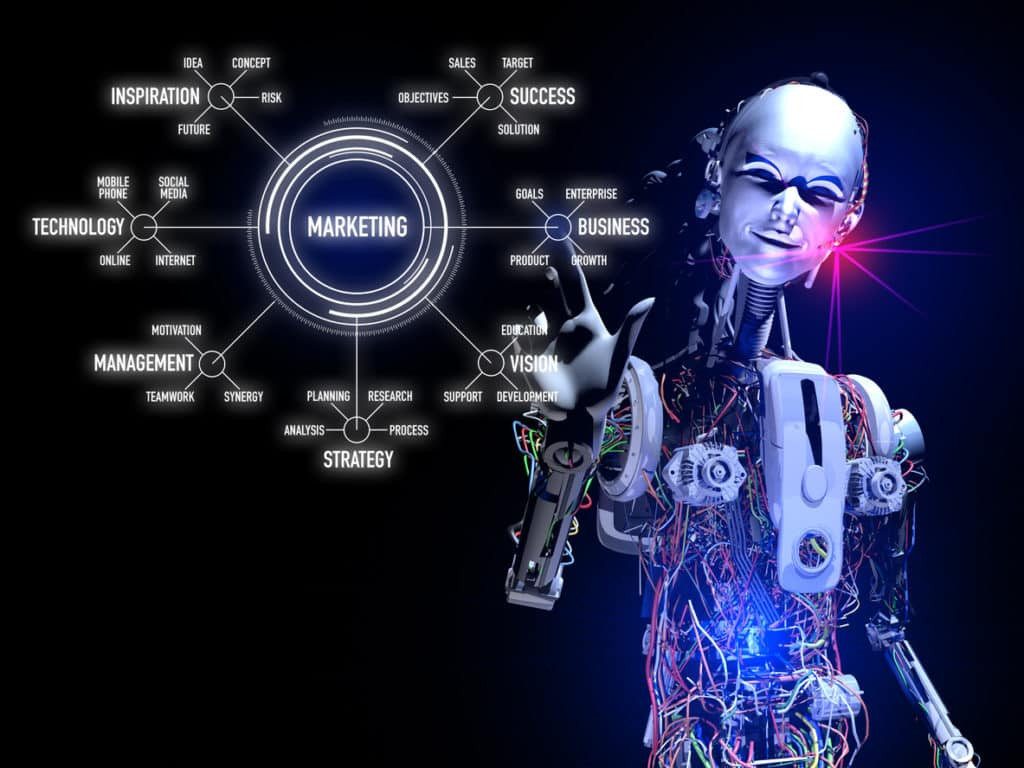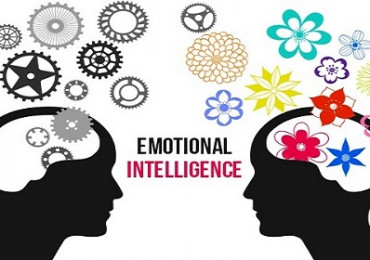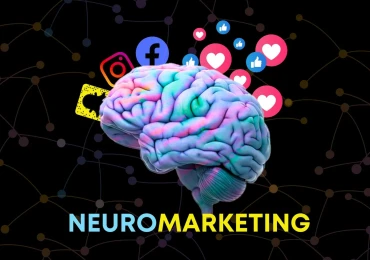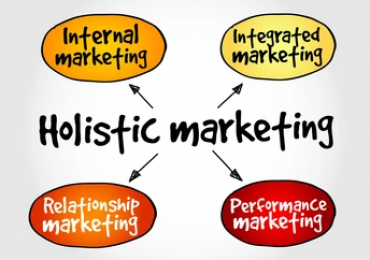
It is the use of artificial intelligence techniques to improve and expand marketing strategies. This includes using data and analysis to predict consumer behavior, improve user experience, and automate various marketing processes. This can include Big Data analysis, Machine Learning, and Natural Language Processing (NLP).
Features of AI Marketing
- Big Data Analysis: The ability of AI to process and analyze huge amounts of data in a short time.
- Predictive Learning: Using machine learning models to predict consumer behavior and future market trends.
- Process Automation: The ability to automate many routine marketing tasks, such as email and social media management.
- Personalization of Experiences: Providing personalized experiences for each user based on their preferences and behavior.
Benefits and Features of AI Marketing
- Improved Customer Targeting: AI helps target the right audience with high accuracy, which increases the effectiveness of marketing campaigns.
- Increased Operational Efficiency: By automating repetitive tasks, companies can save time and resources and improve productivity.
- Data Analysis and Interpretation: AI can analyze big data to provide valuable insights into customer behavior and market expectations.
- Improved user experience: By instantly personalizing content and offers, companies can improve user experience and increase brand loyalty.
Disadvantages of AI Marketing
- High cost: Implementing AI solutions can be expensive, especially for small and medium-sized businesses.
- Complexity of implementation: AI technologies may require deep technical knowledge and ongoing training to ensure they are implemented effectively.
- Ethical challenges: Collecting and using personal data for marketing purposes raises issues related to privacy and ethics.
Examples of companies using AI marketing
- Amazon: uses AI to provide personalized recommendations to customers based on their purchase history and preferences.
- Netflix: relies on AI to recommend movies and series based on user preferences and viewing history.
Steps to implement AI marketing
1. Set goals: Before starting, the marketing goals to be achieved through AI must be determined.
2. Collect data: collect and analyze available data to use in improving marketing strategies.
3. Choose the right tools: choose the tools and techniques that suit the company's needs for AI.
4. Implement experiments: Initiate pilot projects to evaluate performance and adjust strategies.
5. Adapt and continuously improve: Monitor performance, adapt to market changes, and continually improve operations.
AI marketing represents a paradigm shift in how companies interact with their customers and improve their experience. With the ability to analyze big data, personalize offers, and automate processes, AI can provide a significant competitive advantage. However, companies must consider the costs and ethical challenges associated with this technology. Effective implementation requires careful planning and the selection of the right tools to ensure the best results.

20/08/2024

15/08/2024

18/08/2024

26/08/2024

31/08/2024

15/08/2024

01/09/2024

26/08/2024

31/08/2024

01/09/2024

14/08/2024

14/08/2024

12/06/2024

25/08/2024

31/08/2024

30/08/2024

17/08/2024

18/08/2024

20/08/2024

01/09/2024